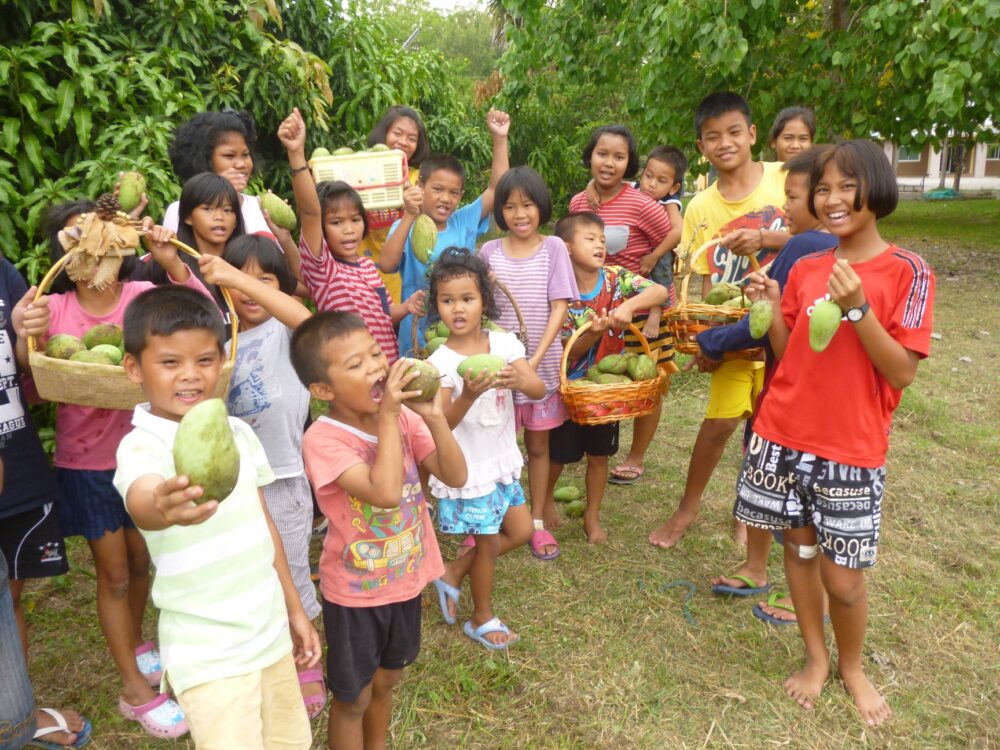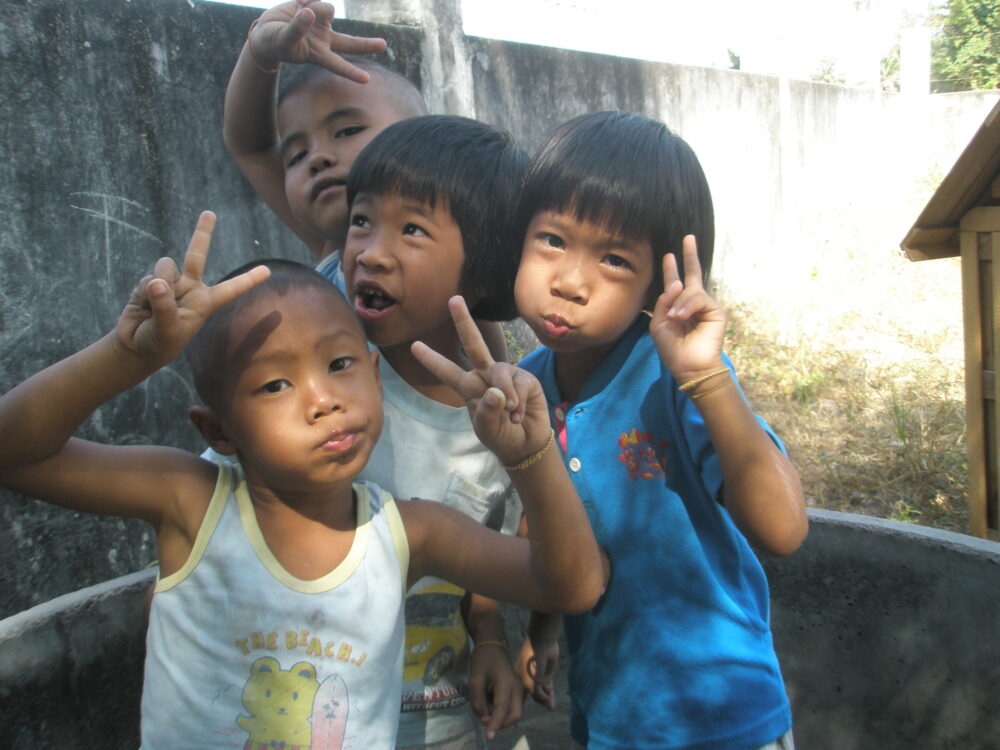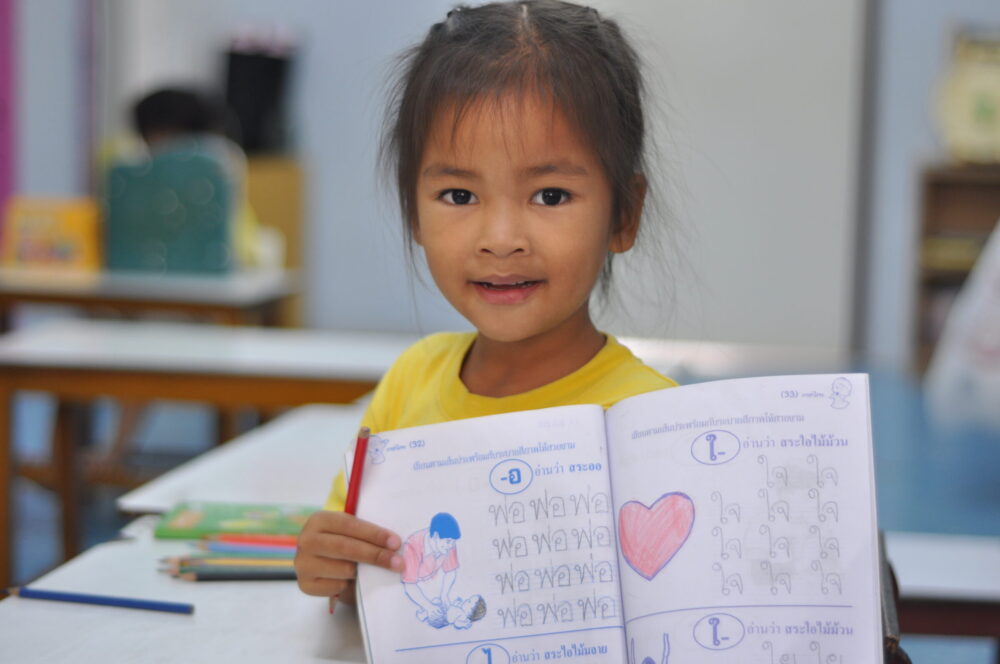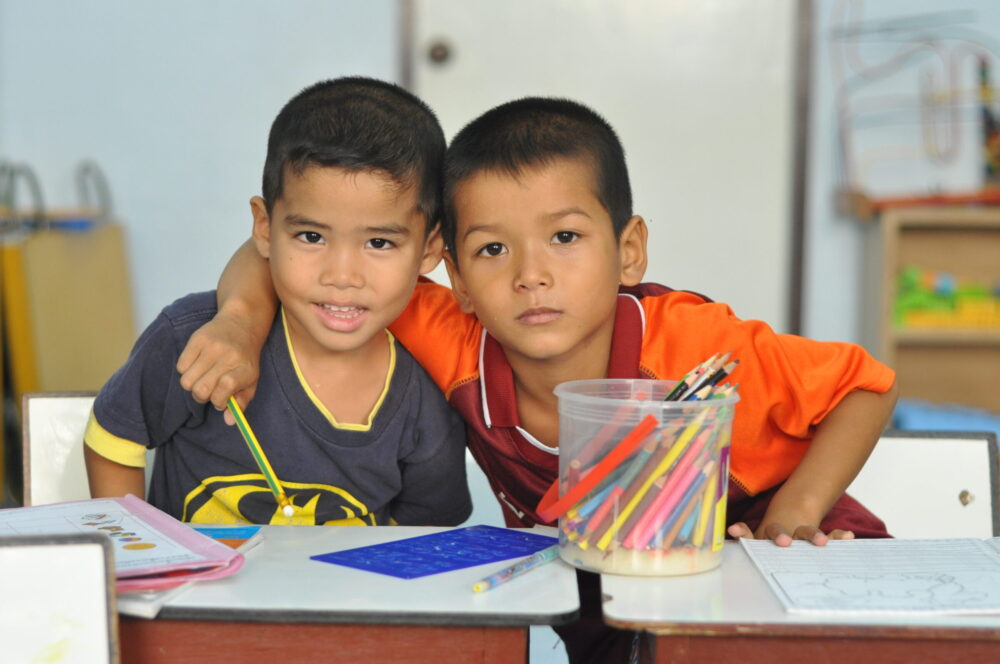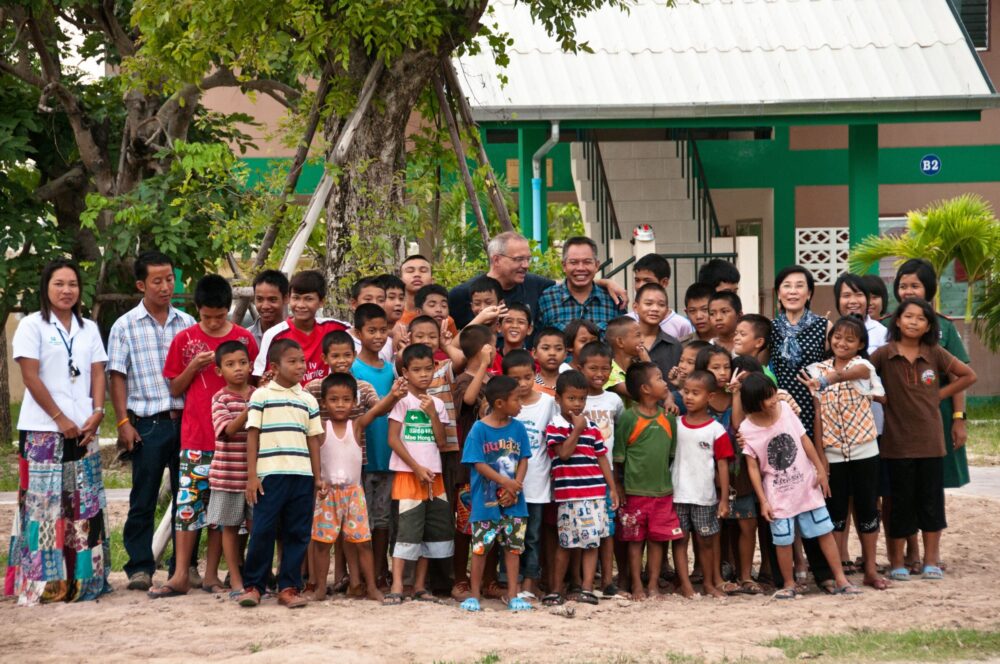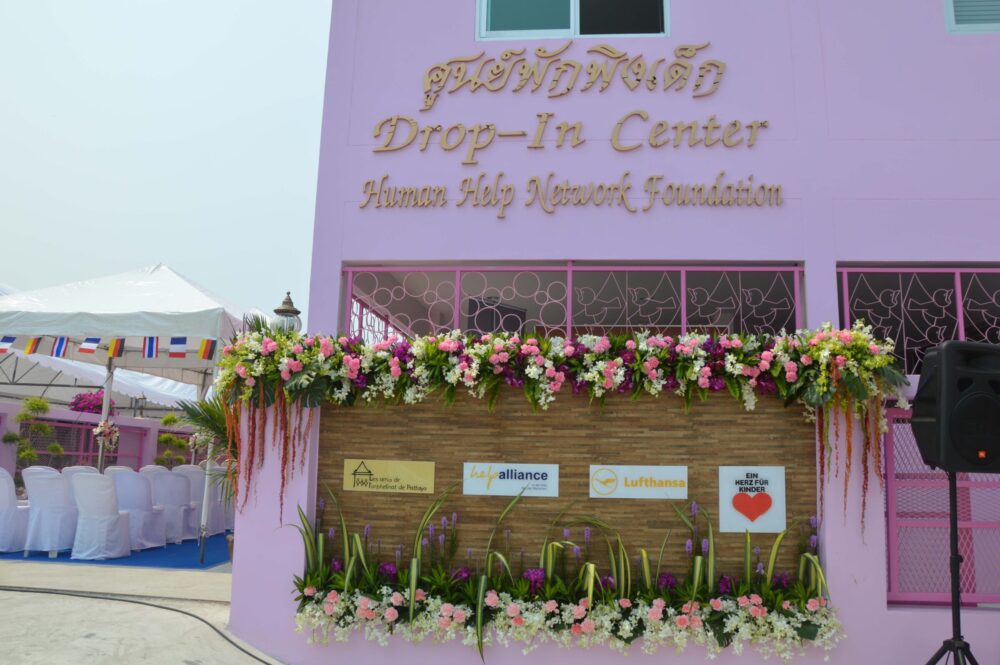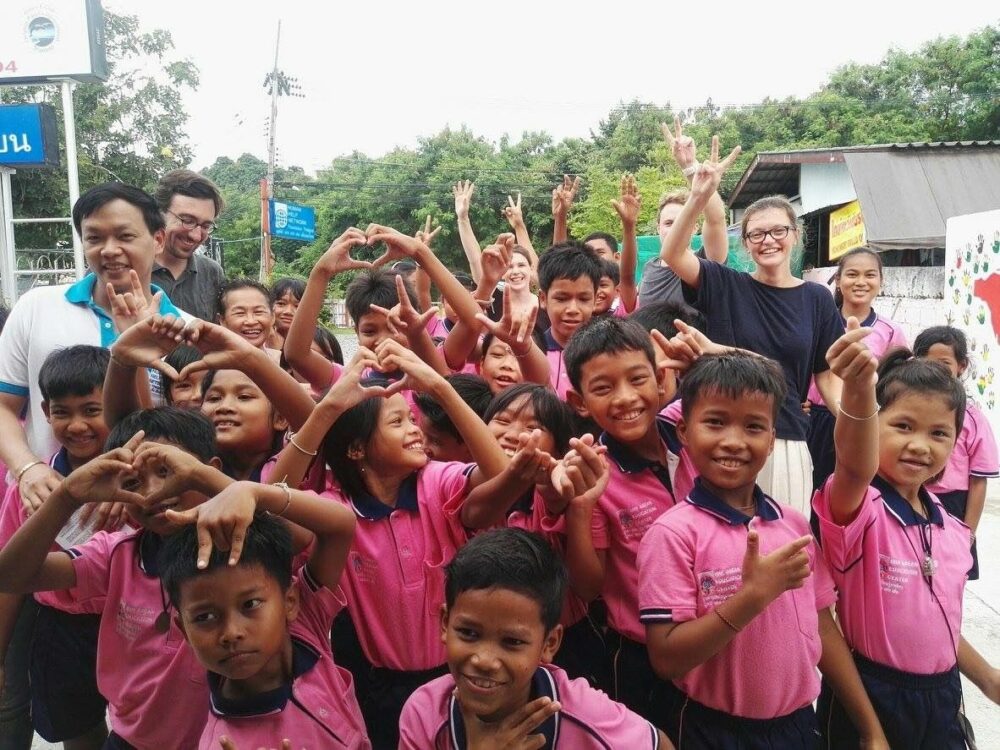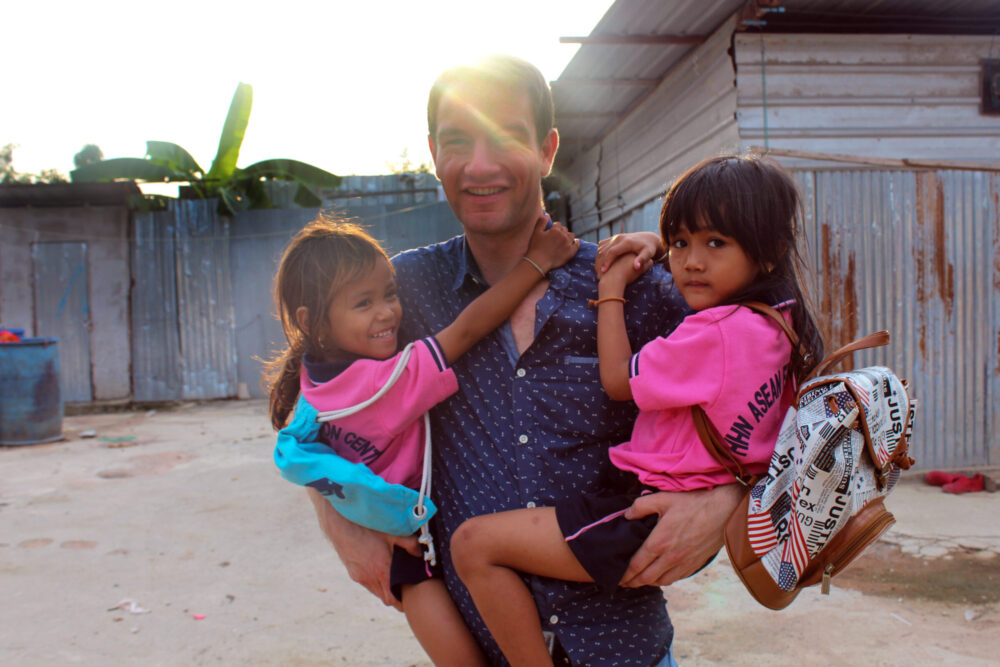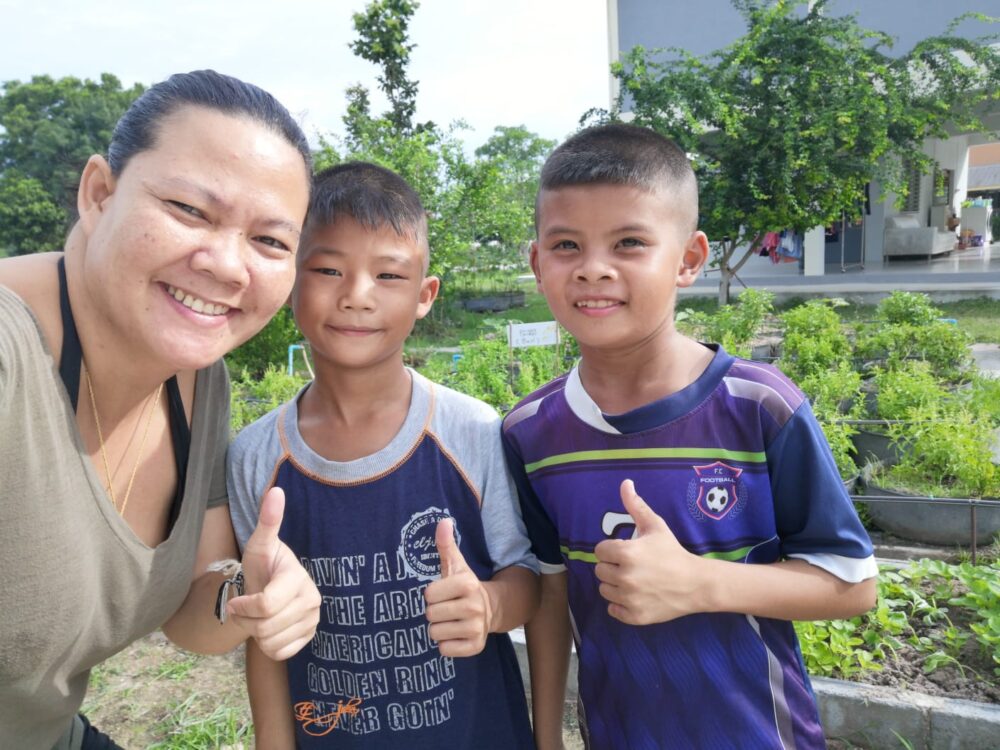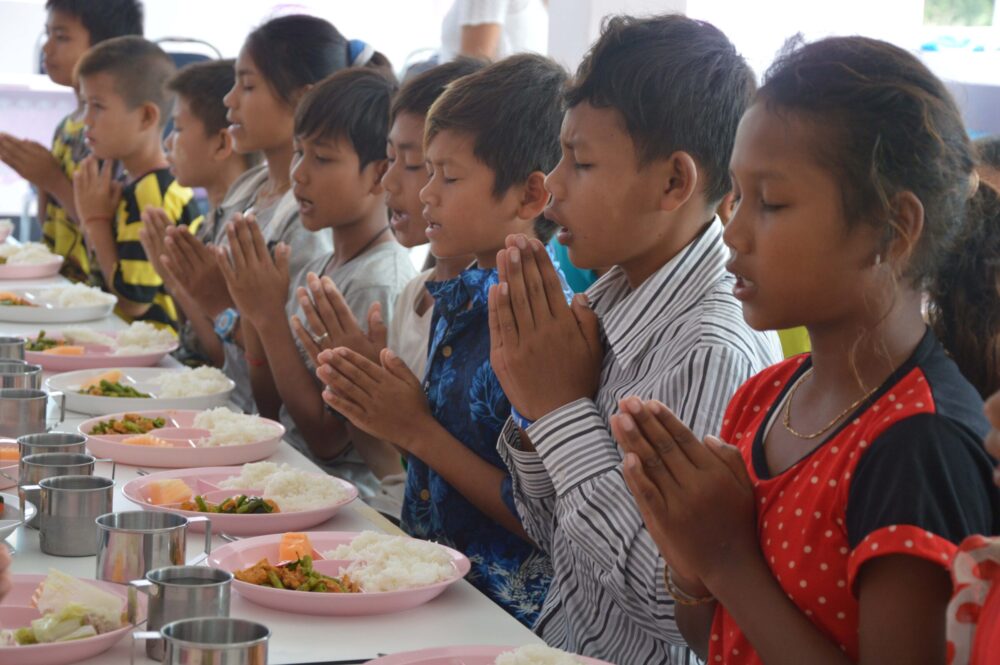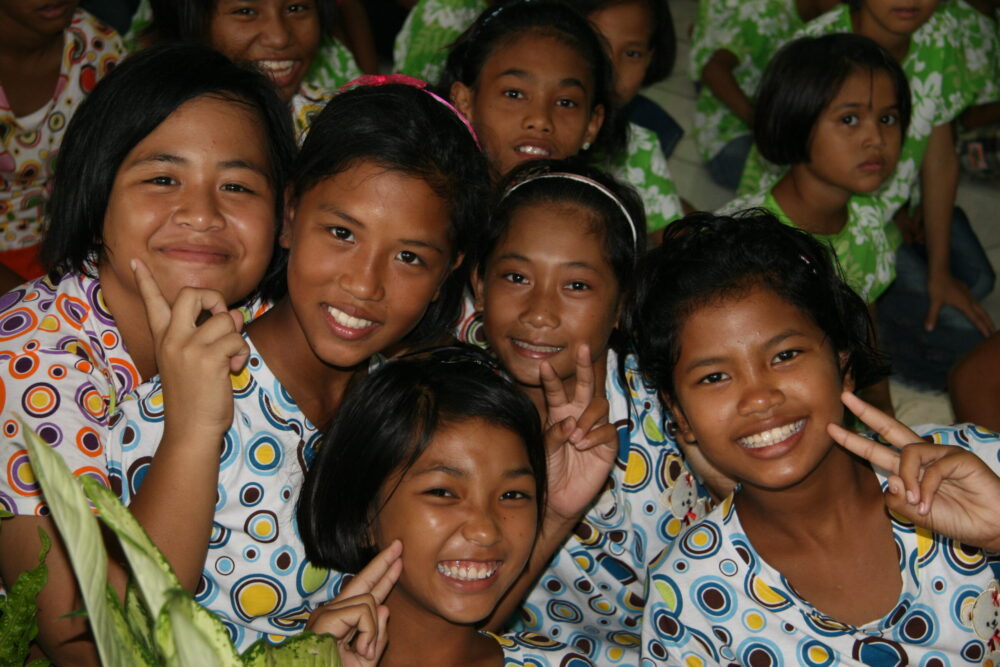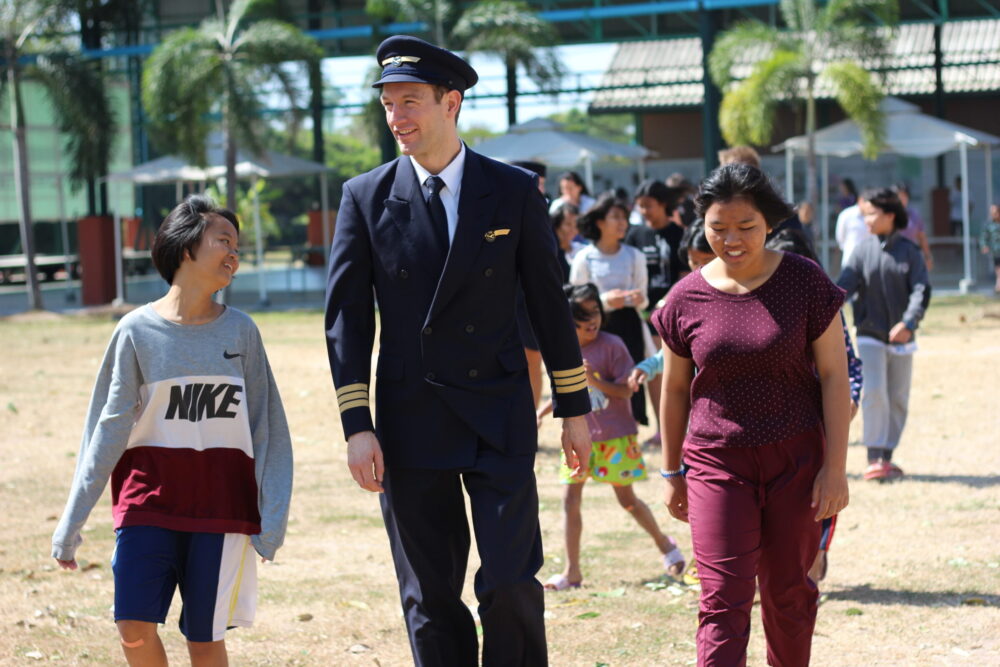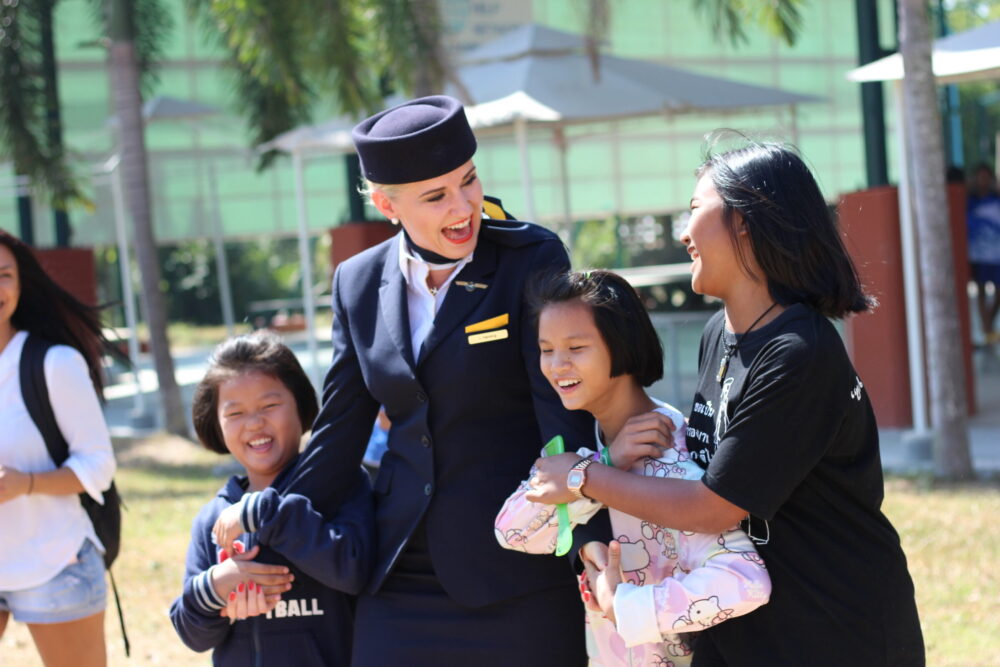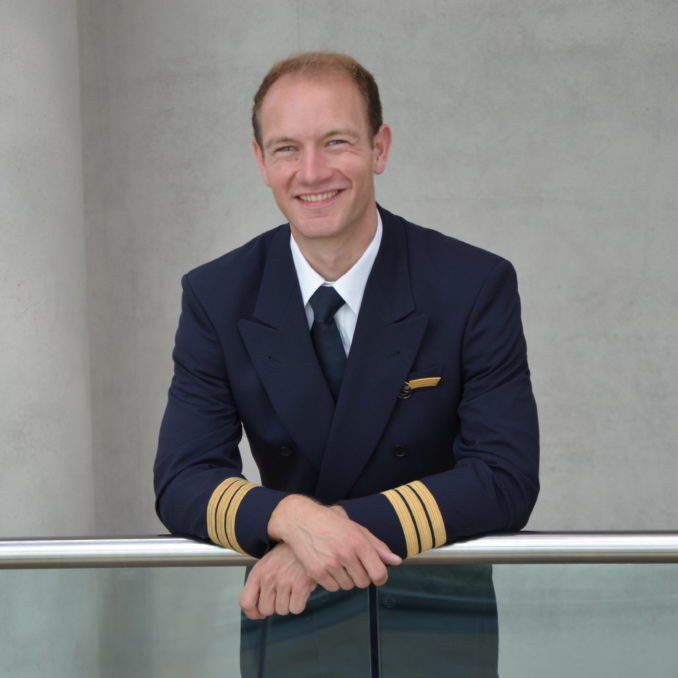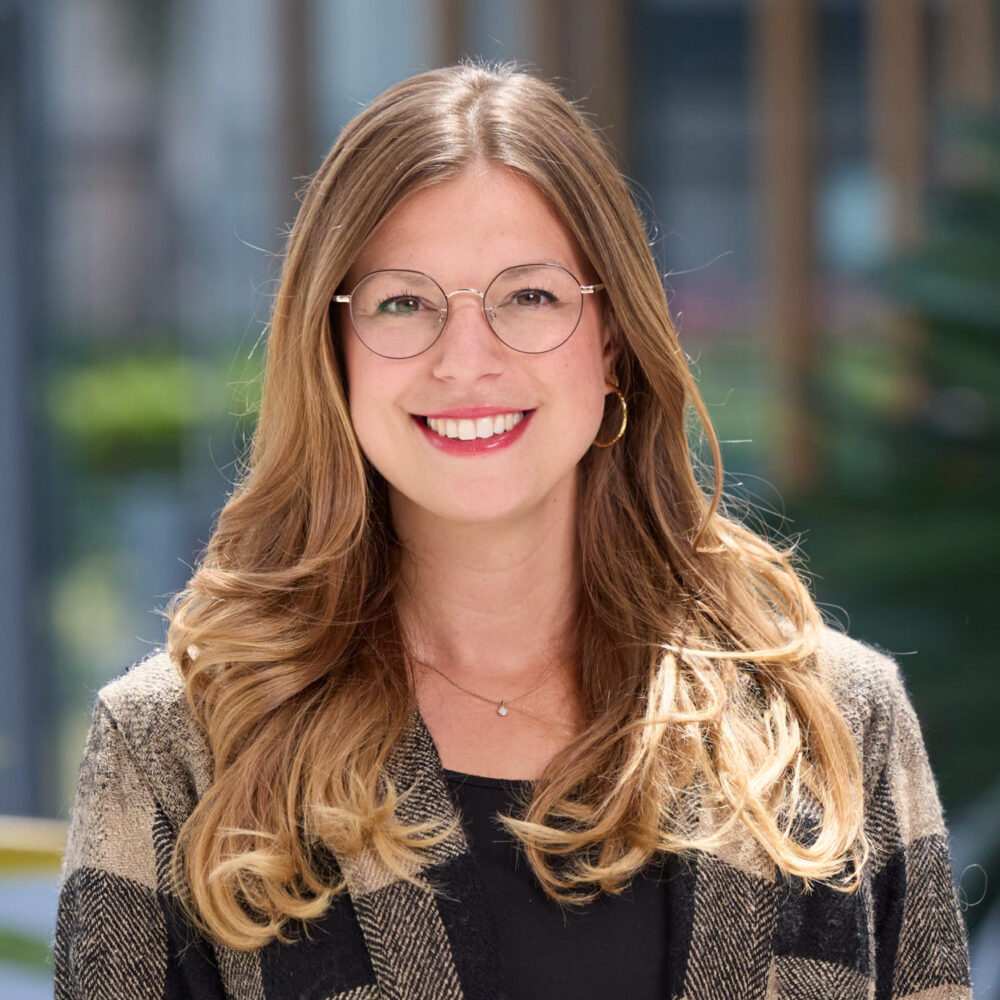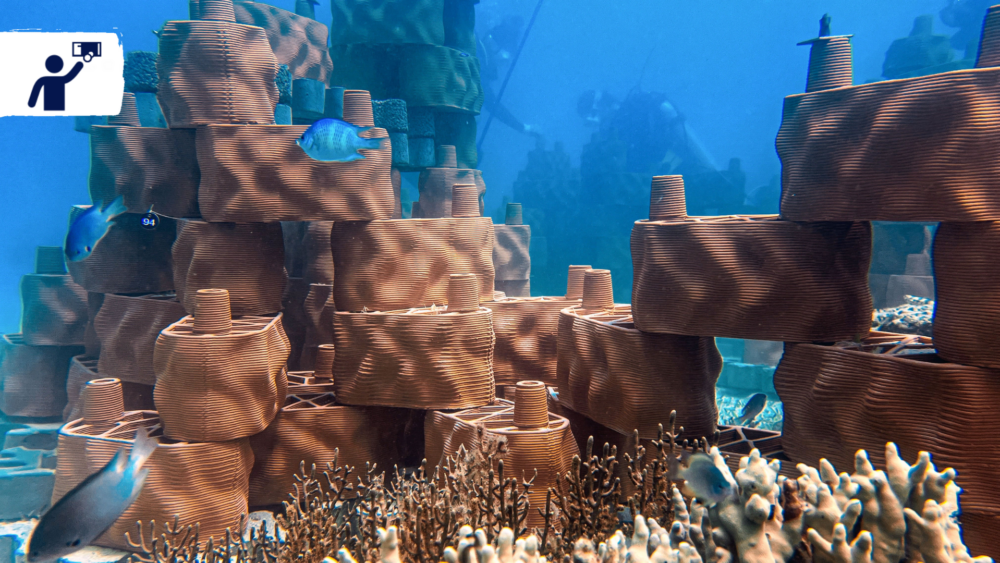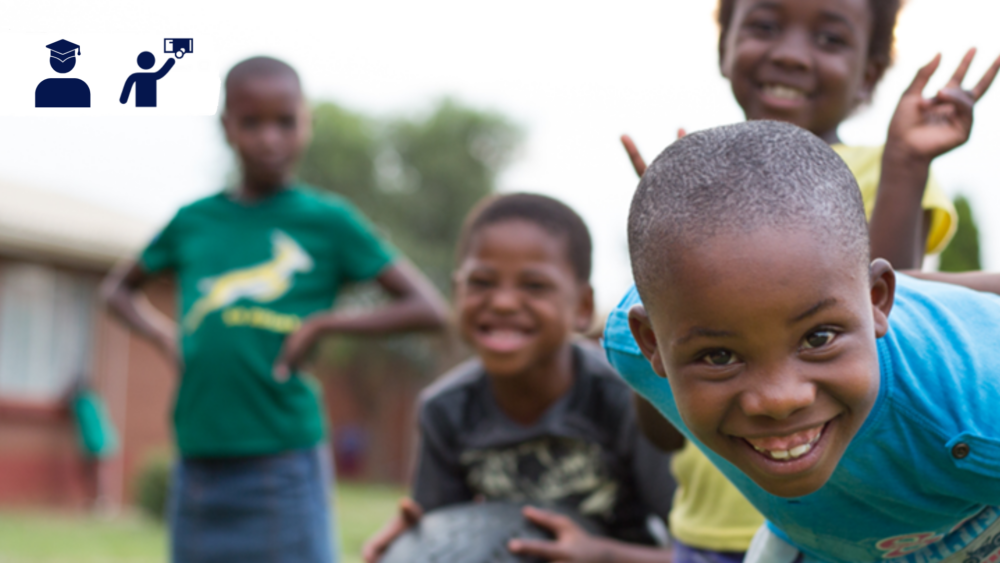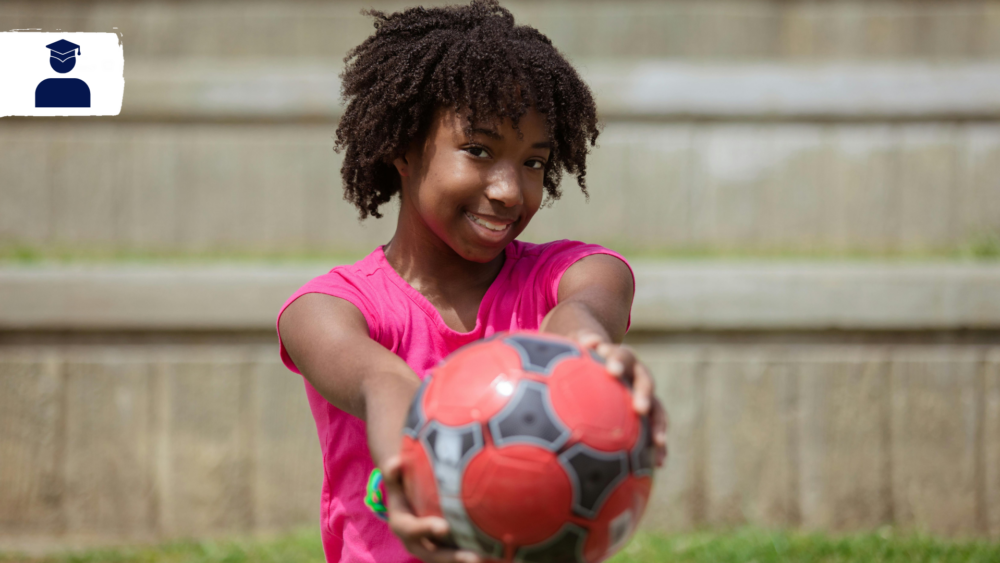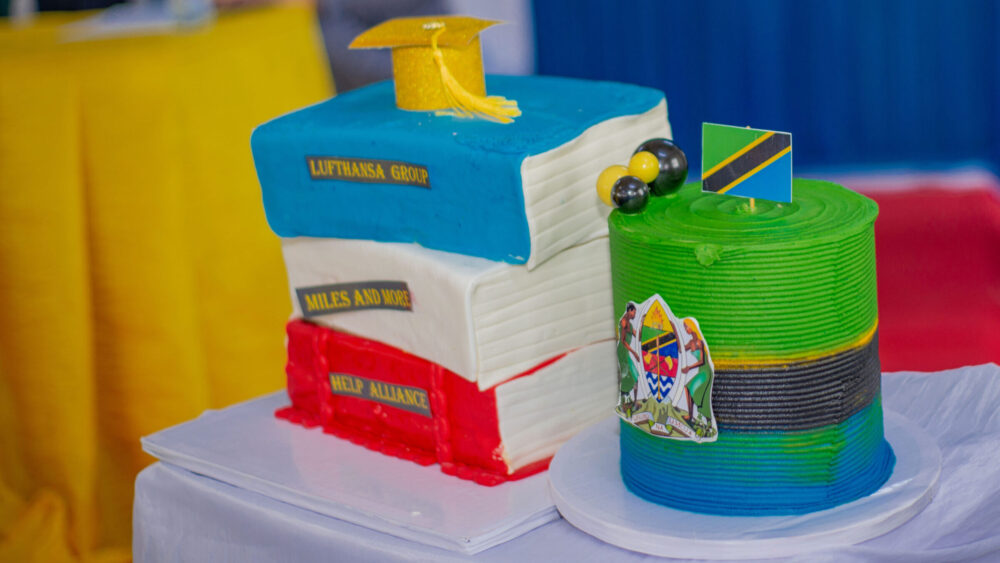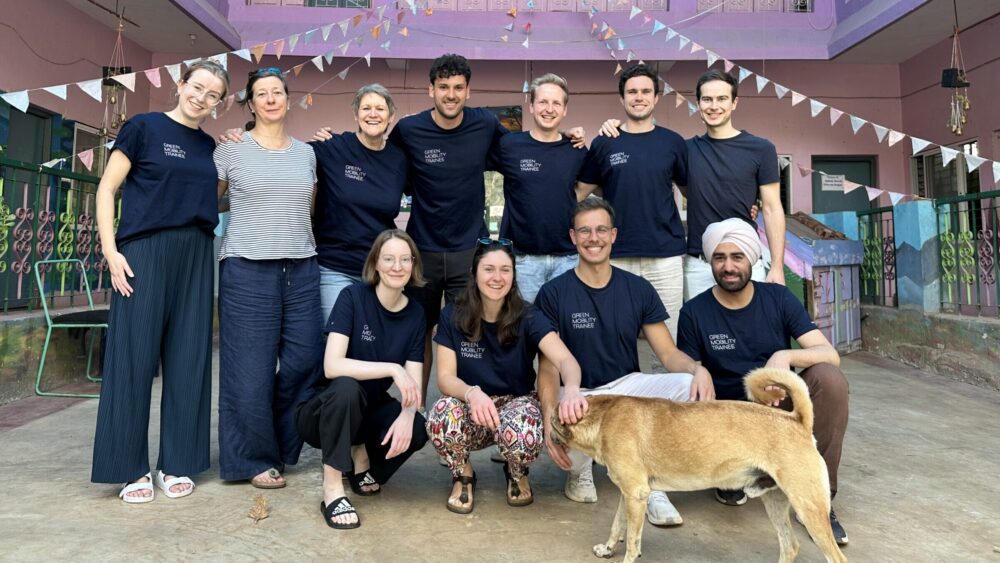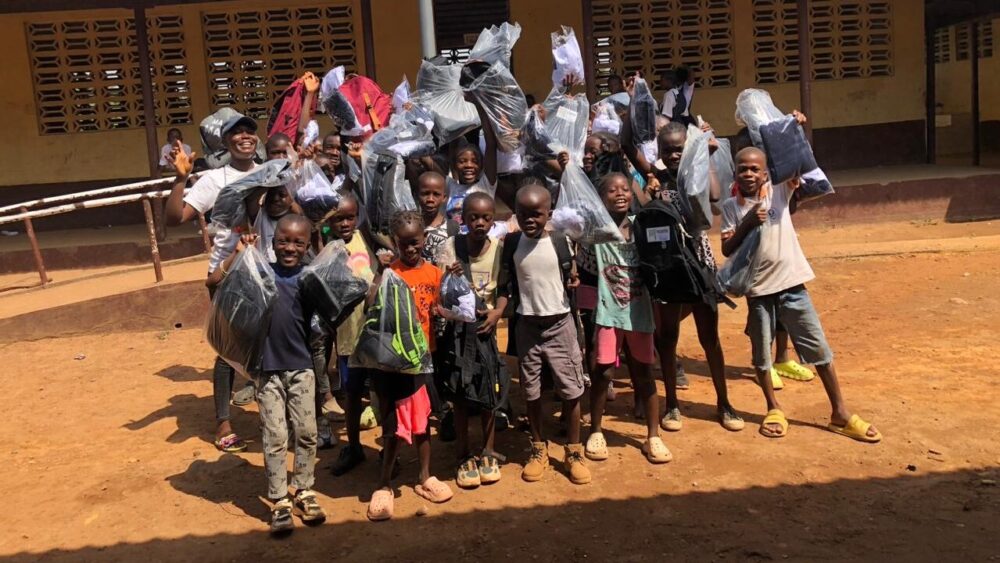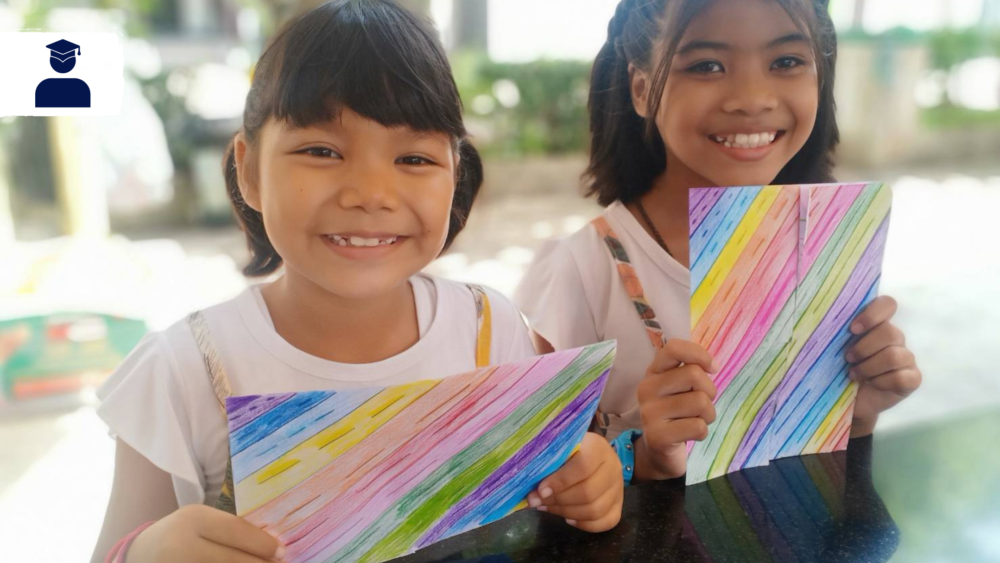
Learning Center, Pattaya
The comprehensive child protection programme offers street children a point of contact, a safe place to stay, regular and balanced meals, medical care, clothing and help in processing their traumas.

Project Background
Especially from the impoverished northeast of Thailand, many migrant workers move with their families to the big cities in search of work. Thailand, which has grown into an upcoming industrial nation, also attracts many families from the surrounding countries such as Myanmar, Cambodia or Laos in search of work. These guest workers often speak little or no Thai and belong to an ethnic minority. Many of them do not have any papers. They usually live in so-called construction worker camps under catastrophic conditions. While their parents work all day on construction sites, the children are left on their own and spend their day on the streets. It is estimated that there are around 30,000 street children in Thailand, most of them in the capital Bangkok as well as in Chiang Mai, Pattaya and Phuket. In their poverty and distress, children in particular often fall into the hands of child traffickers in their defenceless situation. Almost 80 percent of human trafficking in Thailand is aimed at sexual exploitation, and almost three quarters of all victims are underage girls. Thailand remains a destination for sex tourists, and the beach metropolis of Pattaya is often referred to as the global capital of prostitution.
Target Group
About 3,950 homeless children and needy young people live in the city of Pattaya and its surroundings – and the number is rising. They are marginalized and stigmatized by society and are at great risk of violence, abuse, exploitation, drugs and diseases such as HIV. To ensure their survival they beg, try to sell small things like flowers to tourists or end up in prostitution. Many of these are children of guest workers who live in camps. Left on their own all day, they are easy prey for human traffickers. A network of child traffickers and prostitution rings has long been established on site, which exploit and abuse the children for their own purposes. The children and adolescents become dependent. In addition, they have hardly any access to educational or health care facilities and therefore rarely have a chance to escape poverty and life on the street in the long term and look into a future without prospects.
Project Goals
The fight against child trafficking, exploitation, abuse and poverty are declared goals of the project. A key element of this is to give children who live on the street or who come to Thailand as children of guest workers access to education and thus offer them a future with prospects. In order to achieve this goal, a comprehensive child protection programme has been developed, which is divided into four areas. Through street social work, initial contact is made with the children and information is provided about the dangers of drugs, human trafficking and crime. To protect the children concerned from the existing dangers, most of the street workers work undercover. On the one hand, they can better encourage the children to accept the existing help and at the same time work against child trafficking. Furthermore, the Drop-in Center, which is open around the clock in the middle of the center of Pattaya, offers the children a safe place to go, advice from social workers, food, clothing, medicine and temporary accommodation. Since 2016, the ASEAN Education Center, an all-day educational facility for migrant children from Southeast Asia, has been part of the youth center. Here about 80 to 100 children learn arithmetic, reading and writing in Thai as well as in their mother tongue. In the Child Protection Development Center (CPDC) outside the city, 70 former street children find a long-term new home and are psychologically cared for by trained social workers. They learn to regain confidence in themselves and in others and receive full nutrition and medical care. A school education and vocational training will enable them to lead an independent life later on. In addition, agricultural courses are held at the centre with the aim of acquiring skills in the cultivation of local vegetable and fruit varieties and their processing as part of non-formal education. This agricultural project also guarantees basic self-sufficiency at mealtimes. Since 2014, the project is completed by daily prevention work in the focal points of Pattaya, especially the Construction Worker Camps. The employees in the Mobile Training Units prepare learning units for each day, which range from Thai vocabulary to children’s rights.
The newly built Learning Center was inaugurated in December 2021 and offers space for the care of up to 180 children. The children are picked up in the morning by the employees in the settlements. At the Learning Center, they can expect a wide range of subjects and activities. Lessons are held in small groups, supervised by qualified social workers. Depending on their age, they cook together, do handicrafts, play games, meditate or do sports. Lunch is provided for everyone, a snack is served in the afternoon, and children who do not receive dinner from their parents are given a care package to take home.
The care program represents an outstanding improvement in living conditions and, above all, future prospects for children in the slums and migrant camps.
To reach children who cannot come to the Learning Center, a Mobile Training Unit (MTU) is on the streets and in the communities of Pattaya. It consists of a team of social workers and a minivan equipped for this purpose, which is equipped with material for various activities with children. Films can be shown on a large television to educate about abuse and child trafficking. There are books and games, teaching materials for small on-site lessons, and a first aid kit. This MTU has proven to be an outstanding tool, especially in the lockdown, for providing services to families in the slums and maintaining contact with vulnerable children. Meanwhile, the previous MTU is getting on in years and maintenance costs have risen sharply. Therefore, a new minivan MTU will be purchased this year.
What are you supporting
We have been supporting the child protection project in Pattaya since help alliance was founded in 1999. Over the years, the project has been very successful: Since 2008, for example, it has been able to record evidence that has led to the arrest of over 100 child abusers. In 2013, the child protection programme was awarded the first Thai NGO Award. With your donation you help us to cover the running costs of the complex child protection programme in Pattaya and thus to provide protection, education, food and medical care for the street children.

